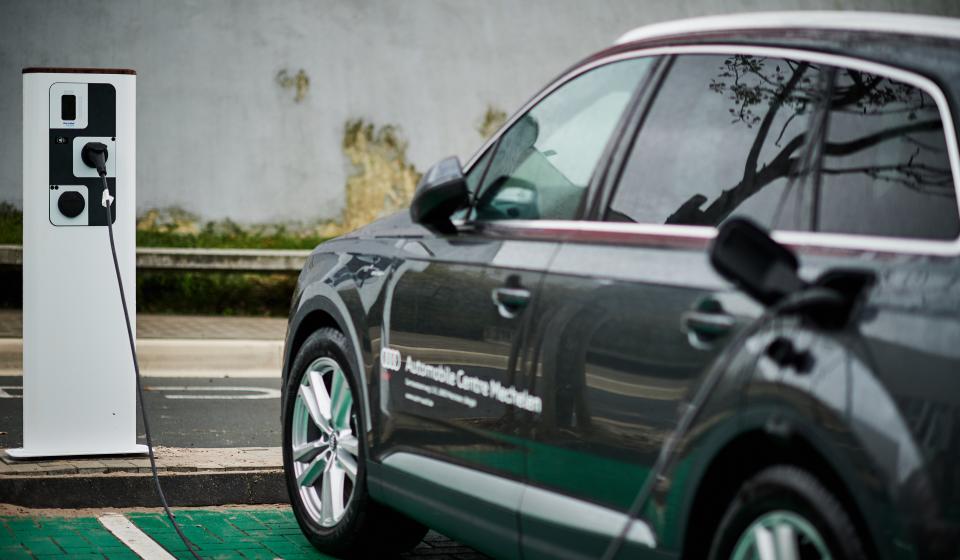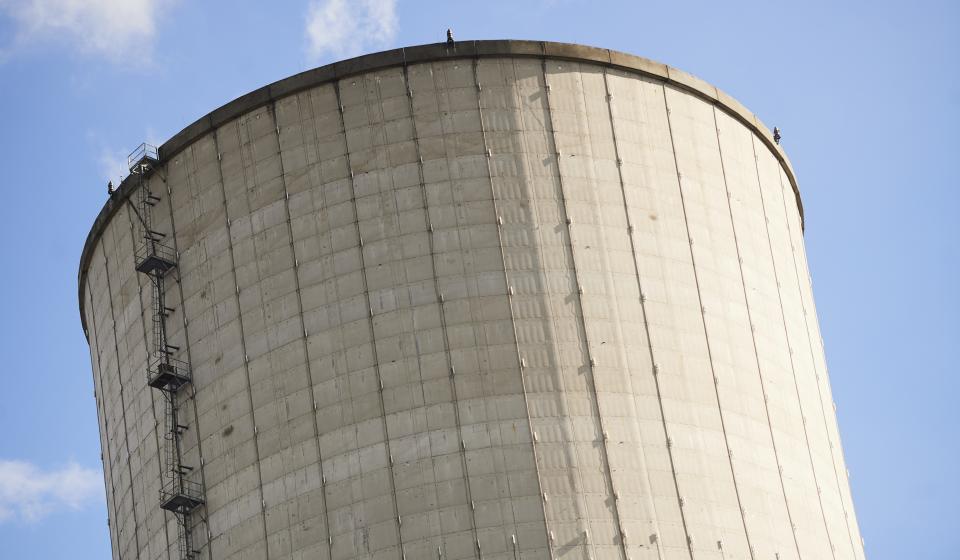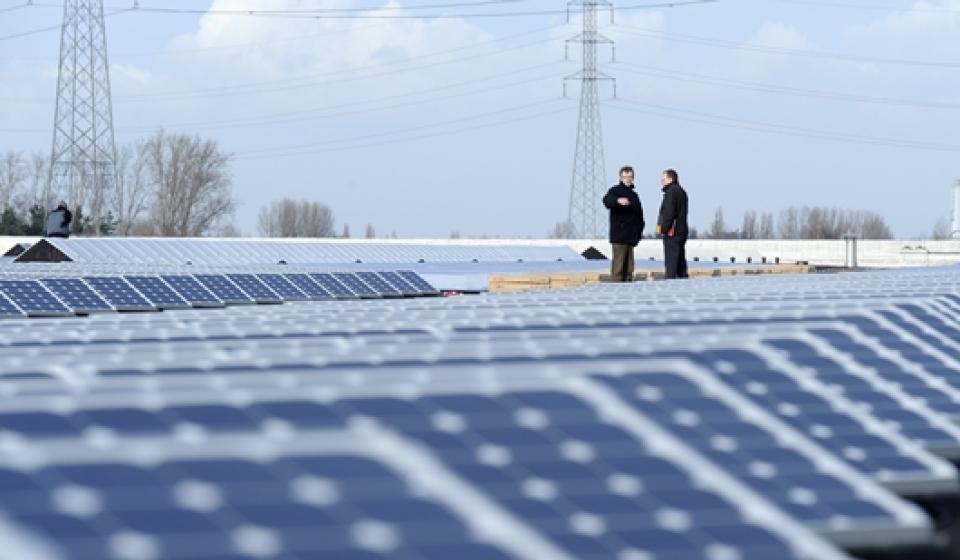WE-EV, the first shared network of charging stations for electric vehicles
Making company vehicle fleets more environmentally friendly is vital to reducing CO2 and fine particulate emissions. The large number of company cars in Belgium provides an opportunity to ramp up the conversion of the country’s vehicle stock in general. However, range anxiety and the lack of recharging points are holding back the rollout of electric cars. WE-EV plans to provide charging stations in industrial areas and business districts, so the places where company car users mainly go to during the day.
One or more WE-EV charging stations can now be set up at companies that want to facilitate electric mobility. These businesses then become members of the WE-EV network and make their charging stations available to other members of the network.
WE-EV is responsible for managing the recharging sessions and invoicing the recharged electricity to WE-EV members through an electronic platform. This platform shows the locations of the network’s charging stations and automatically invoices WE-EV members. This platform can also be accessed on the users’ smartphones. ENGIE is responsible for the design and installation of the charging stations and operates the WE-EV platform and the service desk (available 24 hours a day, seven days a week).
ENGIE has teamed up with BMW and Renault to speed up the adoption of WE-EV. WE-EV aspires to set up 500 charging stations in Belgium by the end of 2018 and achieve its target of installing 2,000 charging stations by 2020 – equivalent to one every 15 km² – over and above the existing network of public charging stations.
Joining WE-EV is simple, simply visit the WE-EV website and leave your contact details.
ENGIE Benelux CEO Philippe Van Troeye: “ENGIE is Belgium’s top generator of green electricity, producing 630 MW. With our 17,000 energy and service professionals nationwide, we intend to play a leading role in the energy transition. Given that we are a major consumer of energy and producer of CO2 emissions, mobility is one of the areas where we are already making an innovative and very active contribution to this transition. ENGIE is playing a key role in the development of the electric vehicle market in Belgium, both in terms of research and development of batteries and providing supply and charging solutions to individuals in the form of our Drive offering. Today with the WE-EV solution we are taking another step forward in terms of supplying solutions tailored to our customers’ needs and rolling out a charging network for companies.”
BMW Group Belux President and CEO Peter Henrich: “For us, ensuring that appropriate charging infrastructure is available to our BMW i and BMW iPerformance customers is vital. The WE-EV network will mean that drivers of electric cars can be sure of taking full advantage of the electric vehicle’s potential. This charging network will also make it easier for other companies to get involved. Both the company and the other parties affected gain from this, making everyone a winner.”
Renault Benelux General Manager Jean-Paul Renaux: “In 2011, Renault was the first manufacturer to offer a full range of four electric cars. This pioneering role is now bearing fruit, sweeping Renault into the number-one spot on the European market for electric vehicles in 2017. Progress on introducing electric cars varies a lot between European countries, with some, including Belgium, rather lagging behind. This makes the rollout of a charging infrastructure absolutely key, which is why Renault welcomes initiatives such as the WE-EV network with open arms.”
Articles and press releases

Electric mobility

Energy supply
